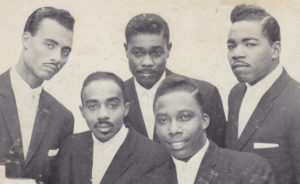
The Rise of Chicago’s Highway Q.C.s
During Gospel’s Golden Era (1947-1964)
by Opal Louis Nations
When the Famous Blue Jay Singers of Birmingham, Alabama and Soul Stirrers of Houston came to Chicago during and after World War II, both the dynamic, hard-singing Silas Steele of the Jays and the yodeling, melismatic Rebert H. Harris of the Stirrers changed the course of church-going gospel quartet in ways that helped transform the Windy City into a principal hub of gospel activity. As Horace Clarence Boyer put it, Chicago became the center for the development of gospel.
Many a young, aspiring quartet singer turned to the spiritual powers of the Jays and the soft, heavenly harmonies of the Stirrers. The most visible of these singers and groups who became prominent during gospel’s Golden Age were Leroy Crume and the Crume Brothers (some of whom moved in and out of the Q.C.’s later on), T.C. Lee and the Kelly Brothers (who recorded for Vee Jay at the same time as the Q.C.’s), Spencer Taylor and the Holy Wonders (whose members later became vocalists of the Q.C.’s), Lou Rawls and a second set of Holy Wonders (whose soldiers sometimes sat in with the Q.C.’s), James Phelps and the Clefs of Calvary (Phelps sang in the Soul Stirrers in 1964) and Credell Copeland Snr’s Q.C.’s. “Cope” Snr. was assistant pastor of the Highway Missionary Baptist Church. Where the Q.C.s tag came from, nobody could remember. It was jokingly thought that it meant “Quiz Kids.” Maybe they simply thought of themselves as Quartet Crusaders. Crusader was a word commonly used by gospel groups such as the famous Singing Crusaders of New York who recorded for MGM.
Some time after World War II, “Cope” Snr. began teaching and rehearsing young teenage singers who aspired to sing quartet. A quartet singer himself, “Cope” Snr. opted to form his own group, a quartet without a name (as yet.) There were four males between thirteen and sixteen, the three Richards brothers, first lead Lee, sixteen-year-old Charles (“Jake”), bass, Curtis who sang tenor plus “Bubba” (a.k.a. Credell Copeland Jnr) who took baritone. “Bubba” was a friend of Sam Cook’s at Wendell Phillips High. In addition, second lead Junior Rand, sang temporarily in the group. “Hanger-on” Raymond Hoy, a rejected tenor, later served as m.c. at church venues. “Cope” Snr. rehearsed the quartet vigorously for a year before presenting them at barbershops, beauty parlors and small storefront churches on State Street.
As legend has it, one day during the spring of 1947, Lee and Jake Richards ran across Sam Cook singing “If I didn’t care” (one of Sam’s favorite Ink Spots’ chestnuts) to a girl in the hallway of a building at Thirty-Sixth and Rhodes. (Up to this point Sam had only sung in David Peale’s Singing Children.) Peale was a friend of Sam’s father, Rev. Charles Cook, minister at the Chicago Heights church. The Singing Children were Rev. Cook’s kids, Sam, Charles, L.C., Mary and Hattie, who, when called upon, sang sacred and “not so sacred” songs. Sam not only warbled with his siblings in church but sang the devil’s music at other times. It was as much as the Reverend could do to keep Sam from singing along to Ink Spots tunes on the radio in the house.
So pretty were the sounds of Sam that echoed through the hall that both Lee and Jake started singing along in harmony behind him. As Sam was not currently with a semi-pro gospel group, he was asked to sing with the Richards group of yet no name on the third floor at 466 E. 35th Street. When Cooke took over the first tenor spot, “Cope” Snr. saw the need to hire Soul Stirrers baritone R.B. Robinson as trainer. By now the “no-name” group had become the Highway Q.C.’s and was making a louder noise around the bigger brick churches. They sang regularly at the Travelers Rest Spiritual Church, the Du Sable High School, and at the quartet union headquarters in the YMCA at 3838 South State Street. “Cope” Snr. had a large truck and started driving out on three or four day trips to churches in Joliet, South Bend, Gary, Muskegon and Detroit. “Cope” Snr. took care of all the boys’ needs and paid nobody. Sam was the most committed singer and his looks, his talents and his charm filled the churches. By this time the group was made up of Sam Cook, lead tenor, Lee Richards, second lead tenor, Credell Copeland Jnr. or Marvin Jones, baritone, Jake Richards, bass and Gus Treadwell, tenor. Both Marvin and Gus had formerly sung with the Gay Singers.
The Q.C.’s first big break came on September 26, 1948 when they appeared as opener on a major quartet caravan with the Stirrers, Fairfield Four of Nashville and Flying Clouds of Detroit. The Q.C.’s of course were the least known. When the crowd heard Sam’s voice, there was a gasp of surprise. The group caught the more seasoned Soul Stirrers’ harmonies perfectly and Sam stole the souls of the sinners and delivered the awestruck to heaven. In the crowd sat Louis Tate, a talented promoter and friend of R.B. Robinson. Tate wanted a stake in the Q.C.’s and offered to put them on major venues in the Mid West.
With Rev. Cook and “Cope” Snr’s blessing, the Q.C.’s drove out heading for Detroit in early February 1949. But the boys ran out of money before reaching the Motor City. They had made it to a rural gas station in Michigan before running out of gas. The boys decided to send Sam out to sing to the gas station customers and pass around a hat. Bewitched customers readily forked out cash. The hat was soon full and the money paid for a full tank. This was Sam’s first unofficial professional gospel-singing gig.
The group’s first official gig was at Detroit’s Forest Club on February 20, 1949. They shared whatever proceeds were taken at the door with the Harmony Kings of St. Louis (this might possibly have been a former group that Fairfield four Basso-profundo Dickie Freeman sang in) and the Flying Clouds of Detroit with the great Elmer A. Stallworth at the helm. This set-up must have proven tough competition for a bunch of teenage wet-necks from Chicago. No winner was declared but the Q.C.’s did draw the attention of Rev. C.L. Franklin (Aretha’s dad) who sat in the crowd. Franklin had recently set up his New Bethel Baptist Church in Detroit out of what was once a run-down bowling alley and wanted the Q.C.’s to appear on one of his fundraisers as he had heard that the group was desperate for cash. But the Fairfield Four had recommended the Q.C.’s to the 50,000 watt WLAC in Memphis. Tate saw he needed to move his base of operations from Detroit to Memphis as a megawatt radio station like WLAC could generate enough money to see them in decent matching outfits, rent payments and four squares a day.
But Memphis was a racist town and mayor “Boss Crump” kept a lid on having African Americans appear at major venues like the Auditorium on Main Street (The Blue Jays had been shut out in recent times.) Despite Crump, WDIA booked the Q.C.’s on Dwight “Gatemouth” Moore’s regular one o’clock 10-to-15 minute program, “The light of the world.” Moore had recently been converted to preaching and supported gospel music as opposed to entertaining any longer as a blues singer. The booking was extremely successful and lead to a spot on Gates” “Spiritual Midnight Rambles,” a live show presented on Friday nights at the Palace Theatre. In a gesture of thanks Gate promoted Louis Tate to deacon at his little storefront church.
The WDIA radio show helped the Q.C.’s book three or four local live shows a week. It was this that paid the bills – the radio work was for free. Pay was metered out in the form of “goodwill offerings.” The tough part was the competition with established Memphis quartets, but Sam and the boys learned from this. The Spirit of Memphis had enjoyed a regular radio spot on WDIA for quite a while and would shortly become a nationwide success after the release of their first sides on the local Hallelujah Spirituals label.
Sam and the Q.C.’s took note of this and realized the importance of having themselves pressed in shellac. Local songwriter / minister Rev. W. Herbert Brewster of the East Trigg Baptist Church lectured Sam on composition, instruction Cook used well in later years, particularly after his cross-over into popular music. After the odd gig now and then around Memphis, Tate took the Q.C.’s to Indianapolis. Tate was the head of Indiana’s Quartet Union and hoped to showcase the Q.C.’s at the Antioch Baptist Church. As head of the Q.U., Tate took the Q.C.’s with him on his travels which often brought him from Fort Wayne to Evansville. The group appeared on all the Q.U.’s programs. Soon the same small tours spread to Milwaukee and Cincinnati where they appeared without invitation.
In January 1950 they drove to St. Louis to appear on Mother Ross’s late night spiritual radio show. This lead to a four-week stay in St. Louis. Later, when Sam co-ran Sar Records he recorded Mother Ross’s daughter Jackie. Every few months Sam and the Q.C.’s would return to Chicago for a visit with family now they were making better money than before.
Most small, indie gospel record companies refused to record the Q.C.’s at this point, complaining that they sounded too much like the Soul Stirrers or that they were too young and needed parental consent. Their musical resemblance to the Soul Stirrers, said Lou Rawls, kept them down in the minor league. Sam began writing songs in a different style and had the Q.C.’s rehearse them, but Tate did not want the group to stray away from a path that had made money for them. Sam felt he had reached a point where he could do better for himself and waited for a time that lead him to fulfill his dreams and growing ambitions.
Sam did not have to wait too long. On Sunday September 24, 1950, at the close of a program at Du Sable High shared with the Pilgrim Travelers and the Fairfield Four, Rebert H. Harris, thirteen-year lead of the famous Soul Stirrers, stepped forward and shocked the audience by announcing he was leaving the group. “It was like a bomb had dropped,” said Harris. The group was stunned. They had just signed with Specialty Records out of Hollywood in February. Specialty was one of the most successful independents in Southern California and their distinguished gospel roster was generating sales in record numbers.
Now with Specialty, the Soul Stirrers were beginning to enjoy block-bookings through their recently set-up Herald Attractions Booking Agency. The magic chemistry of pairing Harris with the awesome chops of tenor/baritone Paul Foster Snr. (from Oakland’s Rising Star Singers) in the swing-lead spot created a mix made in heaven. Foster had replaced Leroy Taylor who would soon be joined by Harris in the formation of the Christland Singers. The Stirrers felt betrayed. Harris had given no prior warning as to his imminent departure and now the group was adrift without a rudder. But rescue would soon be underway.
Sam had caught word from R.B. Robinson that Harris had quit and jumped at the idea of auditioning in his place. Robinson told S.R. Crain and Crain set up an audition at which Sam instantly won them over despite the fact that he had his own unique and distinctive style. Was Sam too young and inexperienced to go out on the highways and byways of the land with a well-seasoned bunch of professionals and would the many legions of fans accept this young nineteen-year-old upstart? To make sure the transition moved forward smoothly, Harris opted to stand in the wings and even at times present Sam to the fans at the start of their concerts throughout the winter months of 1950.
This, of course, left the Q.C.’s in an even larger mess than the Soul Stirrers. After Cook’s defection the group changed soldiers once more. The Q.C.’s were back to its three founding members Credell Copeland Jnr., Lee Richards and Charles (Jake) Richards. Full membership was renewed with the addition of Sammy (Sonny) Mitchell, first tenor and later guitar, and lead tenor Spencer Taylor who had taken Sam’s place. The Q.C.’s soldiered on into 1954 when Johnnie Taylor came aboard to share leads with Spencer Taylor (no relation) who had quit the Holy Wonders to join the group. Spencer started out in gospel singing as a young child having been a member of his family group, The Taylor Family Singers.
Johnnie Taylor was born in Crawfordsville, Arkansas and spent his childhood in a gospel quartet called The Melody Masters. After moving to Chicago from Kansas City at about the time Harris had quit the Stirrers, Johnnie spent his spare time in and out of gospel and secular outfits. In 1953 he joined the secular Five Echoes in place of second tenor Tommy Hunt who had been drafted. Other members included Count Sims, baritone, Herbert Lewis, baritone, Earl Lewis, first tenor, Jimmy Marshall bass and sometimes Freddie Matthews who served as the quartet’s chauffeur. The group was signed to Sabre and in February 1954 Johnnie took second lead on “So lonesome,” one side of the outfit’s second release. Two other songs were slated for release but never came out.
The group recorded two songs on the next and last recording date for Sabre in 1954. Meanwhile Johnnie moonlighted over to Q.C.’s rehearsals. In late 1954 the Five Echoes moved over to Vee Jay Records on Cottage Grove in Chicago where they recorded “Tell me baby” and the unreleased “Evil woman” with Johnnie taking lead. All this was going on during Johnnie’s apprenticeship with the Q.C.’s. By May 1955 Johnnie was ready to record. Having already an “in” with Vee Jay, the label seemed the right outfit to sign the Q.C.’s. The Carters (Jimmy and Vivian) at Vee Jay welcomed the Q.C.’s and added them to their gospel stable.
On May 22nd Johnnie and the Q.C.’s recorded four songs, three of which – the almost a-cappella “Every man, woman and child,” the soul-scorching big seller “Somewhere to lay my head” and the bluesy “Nobody knows” were lead by Johnnie. The simple, rhythmic “Pray” was helmed by Lee Richards. With Sam and Johnnie we have two different and distinct personalities. Sam was always creative, thoughtful and a man of intellect. Johnnie was a brash, narcissistic, sometimes irrationally conflicted person. He considered himself a gospel singer and was always drawn to becoming a minister. But his driving ambition would eventually lead him into the dog-eat-dog world of rhythm and blues.
Musically Johnnie and Sam sang soft, soulful and sweet with Johnnie having a harder, more expressive, rough edge. Both liked the girls, enjoyed to party at times and behave recklessly. Their friendship evolved around what each had in common. This friendship continued into 1962-1964 when Sam, now co-owner of Sar Records, recorded Johnnie for his Derby subsidiary. Chicago’s Vee Jay Records started the release of gospel records almost at the beginning of the Carters’ label. Vivian Carter, wife of James C., was also proprietor of Vivian’s Record Shop plus gospel disc jockey in neighboring Gary. She felt it would profit her to both manufacture and promote gospel in her area and put local minister / arranger / and keyboardist Rev. Maceo Woods in charge of producing and arranging gospel artists for this enterprise.
The first Vee Jay gospel release of February 1954 featured Maceo Woods and the Maceo Woods Singers. The gospel side of Vee Jay was well under way when the Q.C.’s became the ninth gospel act signed to the label in May 1955. Their first single release, “Pray” backed by “Somewhere to lay my head,” drew very little notice in the trades. The Carters had a limited amount of cash for promotion at this time and were putting whatever extra capital they had behind the Spaniels and El Dorados who were looking to be seen as a more profitable investment.
However, “Somewhere to lay my head” became a more widely successful chart later on when it was reissued on their first Vee Jay album in 1959. I doubt whether any royalties ever reached Johnnie’s pockets after that date, when it became his most widely popular gospel recording. The Q.C.’s must have showed promise and someone at Vee Jay kept the faith because Billboard heralded a follow-up single slated for a June 1956 release. This was Johnnie’s soul-inflected “He lifted my burdens” sandwiched with the jumpy “I dreamed that heaven was like this,” co-lead by Johnnie and Lee Richards. Vee Jay’s gospel sales grew almost as well as their blues and vocal group offerings.
In May 1957, Vee Jay created the 800 Gospel Singles series and the third Q.C.s single (recorded during the March 1956 session) was released as their second offering in May. These were Johnnie’s crooning “I’ll trust His word,” sung a-cappella allowing the listener to take in the breadth of his elastic melismas backed with Johnnie’s exultant “I was so happy” with added piano support. The first May 1955 session featured only Maceo Woods on organ accompaniment; the second March 1956 date featured Woods, Sonny Mitchell on guitar, unidentified bass plus Paul Gussman on drums.
The 800 release of “I’ll trust His word” sounds to me like an unfinished take. It is as if Johnnie never really finished working on the song, and that Vee Jay rushed it out for release. What we do know is that Johnnie quit the Q.C.’s not long after the March 1956 session. Sam Cook’s discontent with his lack of royalties and other financial complaints lead him to think of at least writing a few pop songs for cash. He looked around and saw that artists like Ruth Brown and Clyde McPhatter were enjoying a substantially better standard of living. Sam took a few songs to Bumps Blackwell who was extremely interested in launching Sam into the pop field.
This looked like the end of the world for the Soul Stirrers, and it was a tough decision to make for a man who had immersed himself in the music of the church for a decade. He cared much about staying loyal to the folks who had brought him along. But Sam saw a broader horizon in exploring all the many ways he could exploit his talents. The gospel path he felt was the narrow way. Two years after his last session with the Q.C.’s, Johnnie Taylor, having stepped into Sam Cook’s shoes, recorded the beautiful “The love of God” with the Soul Stirrers featuring Paul Foster Snr., tenor and second lead, R.B. Robinson, baritone, Leroy Crume, second baritone and guitar, and Jesse James Farley, bass. Johnnie was heading the Stirrers for about a year before switching to greener pastures under Sam’s tutelage at Sar Records in Los Angeles.
By the next Q.C.’s session date of October 3rd, 1957 the lineup was shuffled to include Crume Brothers’ Ray, tenor and assistant manger, Arthur, guitarist and treasurer, Spencer Taylor, tenor lead and manager, Chris Flowers, lead baritone and secretary, James Davis, tenor , and James Walker, bass and sergeant at arms (whatever task that entailed.) This new Q.C.’s line-up gave us a well-balanced mix of both the former Holy Wonders and Crume Brothers.
Two songs were picked for the Q.C.’s seasonal Christmas 1957 release. Both were crooned by Spencer Taylor who performs well in Johnnie Taylor’s spot. Billboard Magazine awarded four stars to both sides of the single – “The way up the hill,” a lilting ballad, and “There’s something on my mind,” a worrying song.
During the summer of 1959 Vee Jay decided to kick off its new series of gospel albums. The covers of the first four out of the gate bear identical graphics – the supplicant’s praying hands before the shadow of the cross beside a mitered window. These are the most beautiful and lastingly remembered examples of cover art ever to grace a set of gospel albums. These four treasures showcase Thomas Johnson and the Harmonizing four (5002), Claude Jeter with the Swan Silvertones (5003), Archie Brownlee and the Original Five Blind Boys of Mississippi (5004) and the Highway Q.C.’s featuring all five Johnnie Taylor nuggets, six Spencer Taylor sides, plus Lee Richards “Pray” (5005.) All four gospel collections present many of Vee Jay’s very best gospel sides from the 1950s. Only Checker came anywhere significantly close.
The Q.C.’s had to wait until September 1958 for their next singles outing – “Teach me” and “How I love Jesus.” Spencer warbles Frederick Whitfield’s “Oh how I love Jesus” with style and finesse. James Davis shares lead with Spencer on “Teach me” and delivers a fine first chorus. Spencer really comes alive on the traditional “Working on the building” released in the summer of 1959, back-sided with another worrying song, “Sad how they done my Lord,” sung in ensemble fashion.
The 1959 Christmas season was celebrated with the Q.C.’s’ release of Spencer’s “Child of God,” perfectly matched with his fanciful “Behold thy mother.” 1960 was marked by the Q.C.’s’ second album release entitled “Jesus is waiting,” filled with wonderful Spencer’s work recorded in the usual “Cook-clone” expression. The Q.C.’s following single released in early 1960 replicated the two opening songs on the group’s second album, his personal interpretation of Sallie Martin’s “Jesus is waiting,” coupled with “We’re working hard” lead by James Davis.
Just weeks after this, a really wonderful surprise for all of the Q.C.’s ardent fans – the release of “God has not promised,” lead by Johnnie Taylor in his inimitable style which was mistakenly ascribed to Spencer Taylor in the Hayes & Laughton Gospel Discography and said to have been recorded in Chicago in October 1960. The date could well be correct as Johnnie Taylor was back momentarily singing gospel at this time having just recorded lead on “Stand by me, father” and “He cares” for Sam Cook at Sar Records with the then current line-up of Paul Foster’s Soul Stirrers.
The reverse, “Done got over,” is definitely sung in the inimitable Spencer fashion. Another Q.C.’s album appeared in 1961 called “Oh Lord I Pray,” two singles from which were culled for separate release. Firstly the mid-tempo “Do you love Him” was paired with the ballad “Heavenly Father’s children.” Spencer lead on the first and Ray Crume the second. Then came “I don’t want to be lost,” sandwiched with E.W. Blandy and John S. Norris’s “Where He leads me (I will follow).” The group’s 1962 album release labeled “All Men Are Made by God” was from a single of the same title recorded a year before. “All men are made by God” strides along like a march for a Christian soldier. The reverse is a beautiful balladeering cover version of Johnnie Taylor’s magnificently sung “Nobody knows,” rendered by James Davis and arranged by Arthur Crume. On this collection, Spencer steps back a little more to let others like James Walker, James Davis and Ray Crume lead proceedings. Most of the Q.C.’s singles up to this point garnered a four-star Billboard rating and tours with groups from the Vee Jay stable continued to take the Q.C.’s all over the country.
The Q.C.’s’ fifth and final Vee Jay album collection surfaced in 1964 entitled “Gospel Songs Our Mother Taught Us.” “Lord I’ll go” and “Somebody is praying for me” were picked to constitute their next and final single. The Q.C.’s were at the top of their game here and it is hard for me to believe that these charts were waxed in January 1964, despite the matrix numbers. By 1964, gospel music had evolved into a more sophisticated form but the Q.C.’s recordings seem to indicate an earlier and simpler style. The collection was reissued some fifteen years later on the Trip budget label as was earlier aforementioned material.
Things started to go downhill for Vee Jay in 1965. Bills started exceeding profits and by May 1966 creditors moved in, went for the company’s jugular and wound up the business. Fortunately, Don Robey at Peacock Records in Houston picked up the Q.C.’s’ contract. When ABC Paramount bought Duke / Peacock Records, the Q.C.’s moved again, this time to Savoy and did very well. One of their albums, “Stay With God,” reportedly sold more than 50,000 copies, a major achievement for a veteran gospel quartet. Since Savoy, the group has moved to smaller labels like Messiah, Talk of the Town, Wajji and others.
The Q.C.’s played all the major venues across the country during the Fifties and Sixties, including Harlem’s Apollo Theatre, Carnegie Hall and Madison Square Garden. Sam Cook(e) died at the age of thirty-three on December 11, 1964 inside the Hacienda Motel at 9137 South Figueroa in Los Angeles. Answering separate reports of a shooting and kidnapping at the Hacienda, police found the half-naked body of Cooke with a gunshot wound having pierced his heart. Bertha Franklin, manager of the motel, claimed she shot Cooke out of fear of being attacked. But Etta James stated that she viewed Cooke’s body before the funeral and observed that his torso was badly beaten, his head was nearly severed and his hands were crushed and broken. A cover-up was never established and it is believed Cooke’s murder was never thoroughly investigated.
Johnnie Taylor died at the age of sixty-six of a heart attack at the Charlton Methodist Hospital in Dallas on May 31, 2000. The eighty-nine-year-old, long-serving soldier Spencer Taylor, the “godfather” of Chicago’s gospel quartet singing, was honored at the 2017 Stellar Honors Awards this spring in Las Vegas. The award was given for Lifetime Achievement.
— Opal Louis Nations,
April 2017
© 2017 Opal Louis Nations
Written by : Bob Marovich
Bob Marovich is a gospel music historian, author, and radio host. Founder of Journal of Gospel Music blog (formally The Black Gospel Blog) and producer of the Gospel Memories Radio Show.

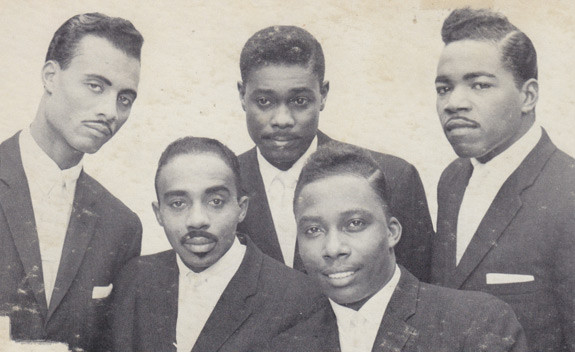
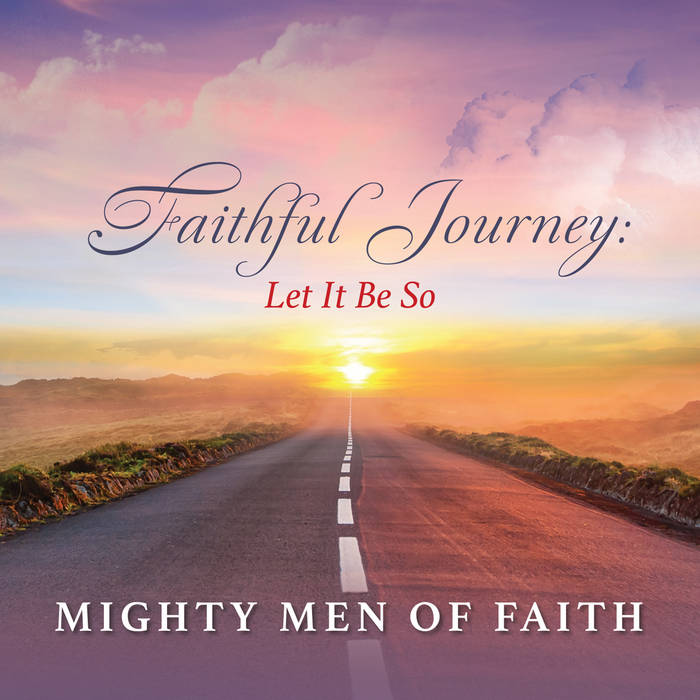
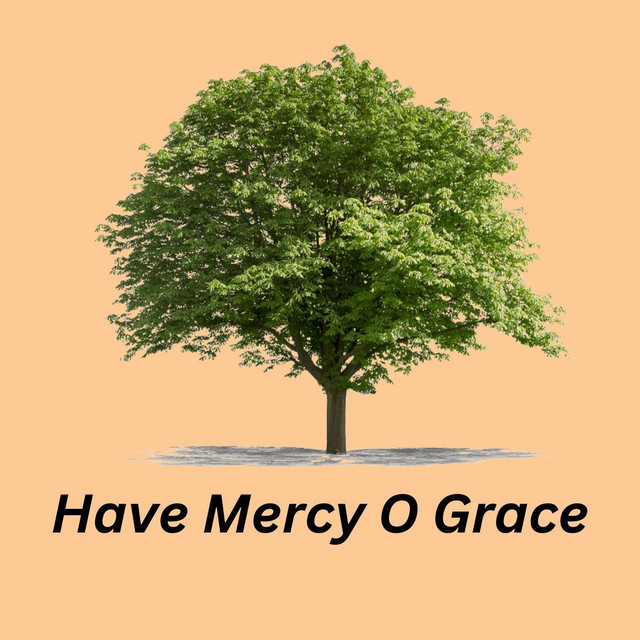
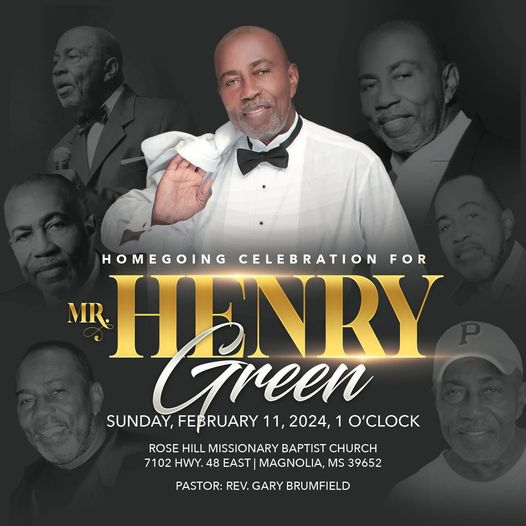






 Visit Today : 1098
Visit Today : 1098 This Month : 47800
This Month : 47800